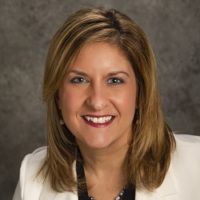According to the American Cancer Society’s latest estimates, more than 1.96 million Americans will be diagnosed with cancer in 2023. Beyond the physical and mental tolls of the diagnosis and treatments, many patients will face significant financial hurdles from loss or reduction of income, treatment expenses, travel costs, and more.
That’s why Wright-Patt Credit Union ($7.8B, Beavercreek, OH) and WPCU’s Sunshine Community Fund is partnering with the Gala of Hope Foundation and Dayton-area hospitals to provide a financial learning program called “Managing Your Finances Through Cancer.”
Here, Tracy Szarzi-Fors, vice president of marketing and business development for Wright-Patt Credit Union and executive director of the Sunshine Community Fund, shares insights on the early evolution of this new pilot program.

How did Wright-Patt Credit Union identify this community need?
Tracy Szarzi-Fors: WPCU puts financial wellbeing front and center, which means asking how we can help members and our community thrive. We’ve had a long-standing relationship with Gala of Hope, a local nonprofit that wants to sunset cancer. Its navigators work directly with patients and were being asked a lot of challenging financial questions as patients had trouble paying for their cars, keeping the lights on, or maintaining their mortgages. Not only are the navigators not trained to give financial advice, but patients were also coming to them too late.
What are the goals of the program? What does it provide?
TSF: The pilot program launched in January 2022, so it’s still evolving. If we can help 40 to 50 people in the next 12 months by relieving their stress and converting that into positive energy that can be directed toward healing, then that would be success.
The program is a combination of one-on-one coaching, hands-on tools, and a financial learning series of classes. It includes an initial triage step based on a financial needs assessment to determine immediate next steps. WPCU financial coaches, along with GreenPath Financial Wellness counselors, assist program participants. So far, we’ve had a handful of patients successfully complete the program.
What are some of the challenges you’ve faced so far?
CU QUICK FACTS
WRIGHT-PATT CREDIT UNION
DATA AS OF 12.31.22
HQ: Beavercreek, OH
ASSETS: $7.8B
MEMBERS: 475,753
BRANCHES: 33
EMPLOYEES: 1,287
NET WORTH: 10.8%
ROA: 1.09%
TSF: It’s an emotionally sensitive time, and patients often go into survival mode. They aren’t thinking of the financial side, especially during exhausting treatments that can last anywhere from two to 12 months. Meanwhile, disability assistance from a state-funded program can take four to five months to start after a diagnosis.
In the best-case scenario, you might be going from a two-income household down to one income. In a single parent household, you might be relying completely on disability payments that are significantly less than you earned previously. Savings can get depleted very quickly in both scenarios, which is why patients were asking their Gala of Hope navigators questions like “How do I pay my mortgage?” and “Should I withdraw my retirement funds?”
The navigators didn’t know the answers, so some patients went to banks or lawyers, still didn’t get clear answers, and racked up yet another bill. The biggest challenge for us is connecting with patients early in the process, before they are in a full-blown financial crisis.
How are you handling these challenges?
TSF: We’re continuing to refine our process and working with the navigators at Gala of Hope and local hospitals to coach people who are not yet sinking financially. We need to connect with them before it’s too late, so we’re simplifying the referral process and trying to remove barriers.
One example is having posters in select oncologist offices and treatment centers letting patients know if they are worried about not being able to pay their mortgage, losing transportation, or not having enough money to cover utilities, we have trained financial counselors who are here to help. The sooner they talk to us about their financial concerns, the better.
Finances are already challenging for people to talk about. When you add cancer to the mix, that intimidation level doubles. Our focus is on making our solutions approachable and encouraging patients not to wait. The objective is to keep them in their house with lights on and ensure they have food and transportation as they go through a challenging time in their lives.
It’s Time To Lead With Purpose
LEARN MORE & REGISTER TODAY

What advice do you have for others?
TSF: One key takeaway for us was don’t make it too complicated.
Initially, we had a long assessment questionnaire for the navigators to ask patients — that was too much. You can’t approach a newly diagnosed cancer patient in the same way you’d discuss finances with someone in a healthy state. You must make it easy and use language that resonates with them while retaining an inviting tone versus adding stress or making finances even scarier.
WPCU’s culture is one of caring. We have an extremely empathetic member engagement specialist who used to be a financial coach and now serves as the patients’ first point of contact, which is helpful to navigate difficult conversations.
What does the future hold for this program?
TSF: Ultimately, we want this program to make people’s lives better. We had a willing partner with Gala of Hope and a clear community need. As we continue refining this pilot program, my longer-term objective and end goal is to template this program and work with more non-profits to help people as they face other hurdles in their lives.
For example, the food bank is serving the immediate needs of individuals and families who are struggling. How can we tweak this program and show them a path to long-term financial stability? Financial wellbeing is a journey, and we plan to keep working with our community partners to chip away at the challenges standing in the way.
This article has been edited and condensed.